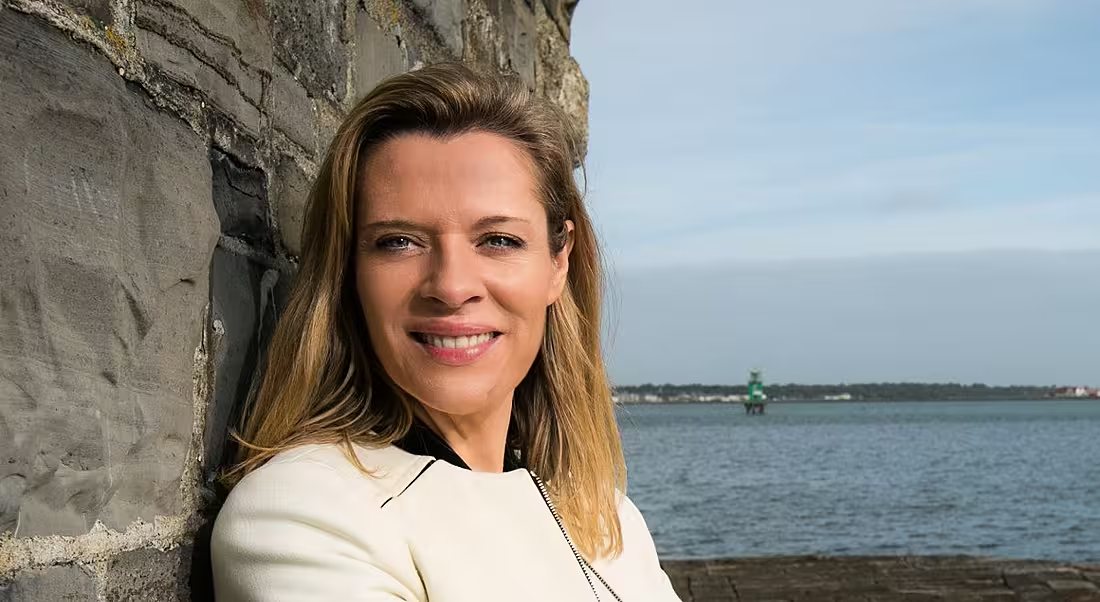With millennials becoming the dominant generation in the workforce, what role will they play in future work trends?
What can we expect in the future of work? Unsurprisingly, it will both affect and be affected by the different generations that experience it.
The millennials are becoming the dominating generation within the workforce. How will they drive the emerging trends within the future of work?
Aisling Teillard is the CEO of Tandem HR Solutions, which recently attracted €2m in seed funding. This led to the creation of 40 new jobs earlier this year.
Before founding Tandem HR Solutions, Teillard was the HR director of O2 Telefónica and SAP. In 2016, she took part in NDRC’s Female Founders programme, in partnership with Enterprise Ireland
Here, she gives Siliconrepublic.com her thoughts on the future of work, where we’re heading and why she’s looking forward to millennials taking the wheel.
What challenges and opportunities face the workplace and workforce of the future?
In the way society has transformed over the past 10 years, I believe the workplace will undergo an equally transformative time over the next 10 years.
The rise of AI, the shifting organisational structures required and digital transformation will bring both challenges and opportunities for the workforce of the future.
Many standardised roles will be automated through AI or digital solutions. As such, the workforce needs to shift its focus into more strategic skills that will propel the business forward.
There will be a greater focus on the network of teams, so ‘soft skills’ will be a key ingredient of success. Those connectors and influencers in your organisation will become more essential, and building collaborative partnerships within and outside of the organisation will be fundamental for the future.
With all of the changes required, our workforce will be required to be more agile, digitally focused in their solutions, and be able to work seamlessly both within and outside of their organisations.
Our leaders will need to be able to manage teams that both report directly to them and those who don’t and are part of the contractor or gig economy. Organisations will increasingly rely on these types of workers.
This will require stronger leadership and the need to accelerate performance in their teams that cross traditional boundaries.
Our leaders will need help in how to develop teams in an era where your team members may know significantly more about their specialist topic than the leader does.
It will no longer be a case of managing performance on functional skills, but rather developing people to optimise their potential.
In all of this digital transformation, there is a real opportunity to put the individual right back into the centre of our processes.
In the way society has personalised the consumer experience, I believe our organisations have the opportunity to do the same for their people, and this opens up enormous opportunities for everyone.
What key trends do you foresee in relation to intra-team behaviour, management-employee interactions, or other workplace dynamics?
It can’t be ignored that many organisations work in cross-functional and matrix environments. In that context, the leader plays a different role than traditionally. Leaders need to be comfortable working with a range of experts who sit within and outside their own team.
In this regard, you see many traditional processes, such as performance management and talent management, under pressure to change.
Looking back over a six-month period to assess performance is very much now considered a dated context. I believe the interactions between leaders and their teams will become more developmental in nature and future-focused.
I also believe technology will be harnessed to a much greater degree to improve employee experiences and bring development in a personalised way, in real time, to both employees and leaders.
How will the workplace change as the Baby Boomers and Generation X age out of the workforce, and it becomes millennial-driven?
I’m not convinced that millennials are really so different to Gen X or Baby Boomers. In many regards, we all want the same things. Perhaps millennials have been a little more vocal about it.
Organisations have needed to respond more to their needs as the war for talent is greater now than it ever was.
However, it’s fair to say that many new workplace initiatives driven by the millennial trends have improved the workplace for everyone. Who doesn’t want a great office environment and greater levels of feedback? And you can’t complain about the beer fridge! Given that the millennial trends have improved the workplace for all of us, I do believe this will continue to evolve.
I believe we will move beyond the aesthetics into deeper topics that will truly improve the employee experience. I expect we will see wider trends of innovation, openness, agility and development in the workplace.
I’m looking forward to millennials being in the driver seat. I think they will speed up what can sometimes be the very slow nature of organisations. I also think they will bring greater levels of flexibility and diversity to the table.
What part will diversity and inclusion play in the make-up of the workforce of the future?
It’s great to see such extensive discussion on diversity in the workplace today. I think pragmatic solutions are needed to keep women in the workplace and progressing through the workplace.
In order to do that, we cannot continue to ignore the childcare issues that permeate. Workplaces will have to get real about true flexible hours, working-from-home initiatives and workplace crèches.
Beyond the female agenda, though, I believe a wider diversity will run through the workforce of the future, that not only welcomes every creed, every kind, every sexual orientation, but that also facilitates a diversity of viewpoint. Too many times, our organisations get stuck in the rut of their own mindset.
Allowing a workplace that welcomes not only diversity of gender and race, but also diversity of opinion and argument? That would create a real welcome change.
Work-life balance is arguably central to job satisfaction. How can it be better achieved?
Many solutions have been out there for a long time; teleworking, flexible hours, part-time, job sharing, extended leave types. There is a myriad of solutions. I think the reality is that those solutions may exist on paper but often aren’t truly embraced.
Flexible hours isn’t that you can come in at 9.30am, it’s more that you miss the rush-hour commute and start your day at 11am if needed, making the hours work for you.
I think the other aspect is the ‘always on’ culture of mobile. Emails, LinkedIn and every other app notification keeps you working, even in your home hours. I really admire the companies who are taking a serious stance on this and switching off late-night emails and demanding their people take proper leave that involves no work interferences.
One large technology company I’m an admirer of even took it as far as sending a senior executive on a holiday where there was no Wi-Fi access, as they were so concerned about his work patterns. His wife was very grateful!
We’ve seen immense increases in salary, particularly in tech. Do you think salaries in your sector will trend upwards or will we start to see other benefits coming to the fore?
I think salaries will inevitably trend upwards to keep up with the cost of living, particularly in cities such as Dublin, which are becoming increasingly unattractive to live in because of the excessive cost of living.
Benefits have already evolved enormously over the past 10 years but it doesn’t have a direct correlation on employee engagement. I believe workplaces will embrace much greater personalised benefits for employees, such as development and learning initiatives to their people.
That is one of the key reasons organisations are losing their best talent – they want greater development. Organisations are starting to respond to this need and are taking brave moves in this area.
We’re currently deep in the world of data. What part will data play in developing the future of work?
Data’s role in the future of work is not to be underestimated. We are getting increasingly better at it all the time but some areas of work are still behind in the kind of predictive data that is required.
While data is enormously powerful, it will still take good judgement, clear decision-making and real action to win in this competitive economy. Sometimes, data can have the opposite effect, instilling paralysis by analysis and delaying decisions that need to be made faster.
Data is key for great decision-making but it’s what you do with your data that counts.
We’re looking at a more automated future, as AI and bots become more sophisticated. How do you think this will affect roles in your sector?
I think many repetitive and standardised roles will become increasingly automated. I do think AI will mean many jobs, as we know them today, will be lost. However, I think they will also open up many opportunities for new roles to further evolve and develop AI.
I still think it is at an early stage and there’s a lot to be done before it can replicate the human touch. Roles will evolve but hopefully it means we can be doing more interesting things in the future, and repetitive tasks will be left behind.
What are the sectors of the future? Where do you believe we will we be seeing job growth and development?
I think we will see a far greater concentration of roles in the future focused on AI. I also think we will see many new roles emerging in the partnership space. Most organisations need to collaborate much more effectively with those outside of their organisation to succeed.
Partnership and collaborative skills are still a neglected space and I believe this will be a growth area of the future.
What will companies need to do to attract and support the best talent?
Most people want to come in and do a great job and aspire to becoming the best version of themselves. I believe the organisations that support people to develop through growth-oriented feedback and individualised development will ultimately win this war for talent.
Organisations that create real communities within them, where people support each other’s development and success, will have the real edge.
How do companies need to change right now to be ready for the future of work you have envisioned here?
Companies have got to focus on differentiating their employee experience and creating a culture unique to them. It is the people who will help you win or lose; starting with them is a great first step.
Facilitating an environment that offers a really developmental and collaborative community of people supporting each other to win will ensure your organisation’s success for the future. Companies need to be brave and innovative now more than ever.
Taking risks, embracing digitalised solutions, trying new things and not being afraid of failure will help instil a culture of innovation. This will create a desirable place that will win the best talent.
With the best people, you can overcome any challenge the future may pose.




